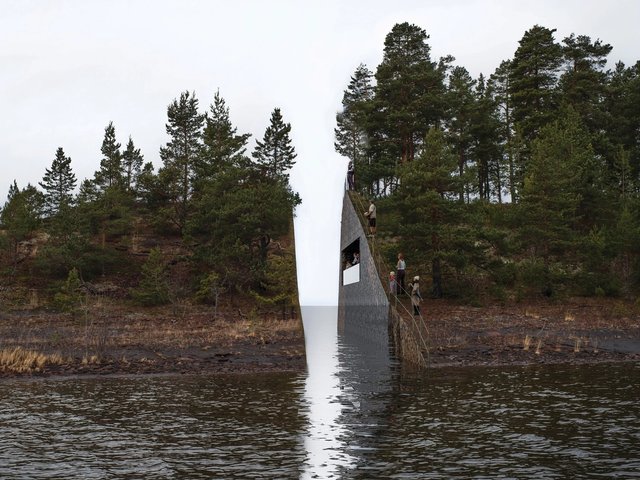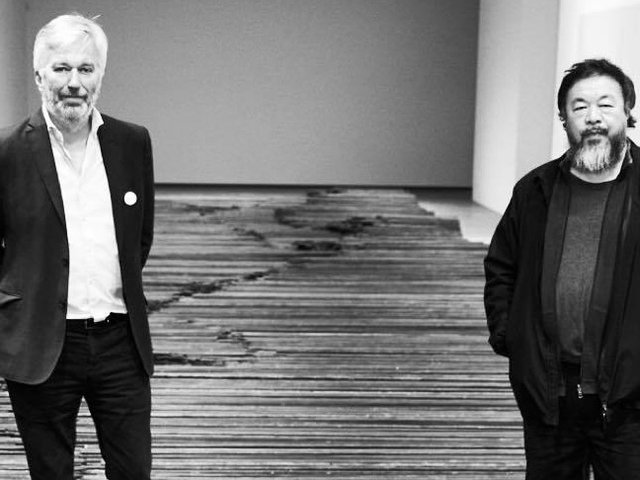Jonas Dahlberg’s highly praised memorial for the victims of the 2011 terrorist attack on the Utøya island in Norway will probably never get built. Jan Tore Sanner, Norway’s minister of local government and modernisation, said that the government is willing to drop Dahlberg’s proposal in order to reach a settlement with a group of people living close to the memorial site who plan to sue the state in order to stop the project. The group is led by the local Fremskrittspartiet politician Jørn Øverby. The right-wing party is in coalition with Sanner’s larger Conservative party.
“I am convinced that the public debate … is an important part of the grieving process necessary for a community,” Dahlberg says in a statement, adding that “the events of 22 July 2011 were an act of political terrorism. It is more important than ever to talk about its causes and context in the current political climate. A memorial that proposes a state of consensus, a form of silence, would also diminish the events and make it easier for the circumstances to be forgotten in time.”
The Swedish artist had suggested cutting out a huge part of the peninsula Sørbråten, which faces the island of Utøya, where the right-wing extremist Anders Behring Breivik killed 69 people at a summer camp for young centre-left political activists; earlier, he killed eight people in the capital, Oslo, in a car-bomb attack. Dahlberg’s work should be a “wound or a cut within nature itself. It reproduces the physical experience of taking away, reflecting the abrupt and permanent loss of those who died,” Koro, the body in charge of public art in Norway, said in a statement when Dahlberg’s design in 2014 was selected.



